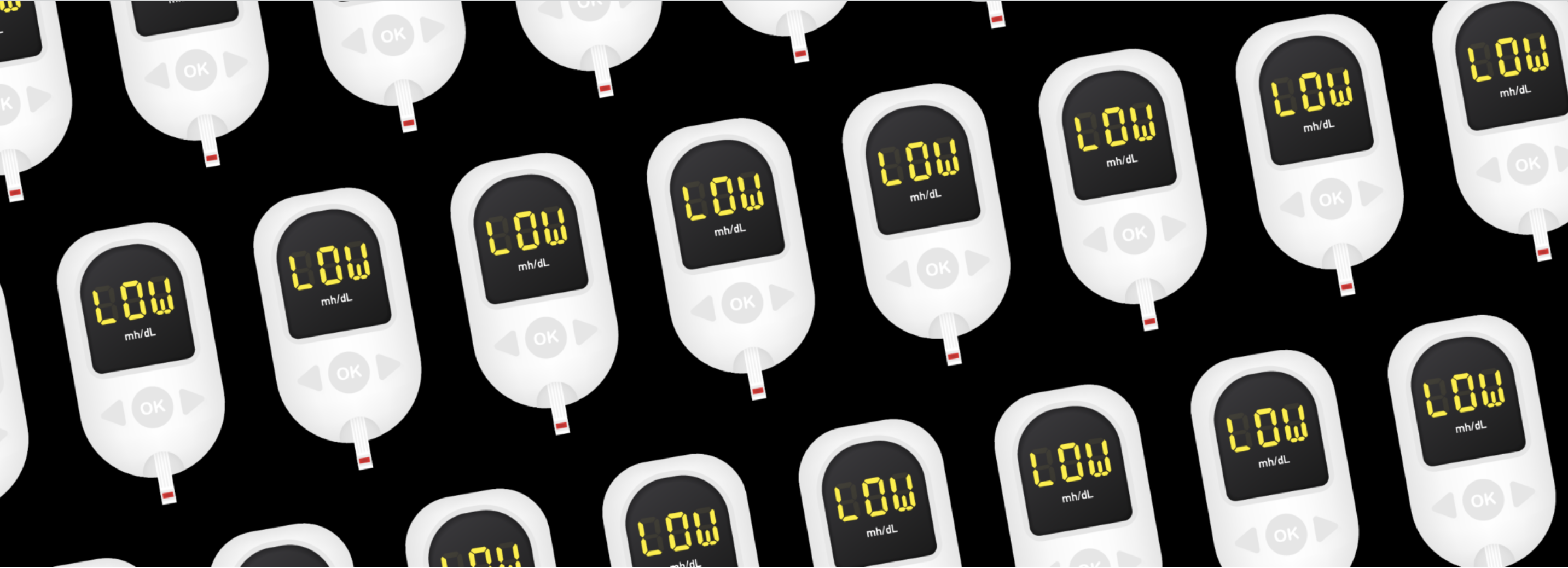Exhaustion and the Sleep-Interrupted Caregiver
Written by: Bonnie O’Neil
4 minute read
December 15, 2020
Nights are the most draining of all. With the weight of our daily work, parental responsibility, and type 1 diabetes (T1D) caregiving still heavy on our shoulders, at day’s end we long to lay our burden down, retreat to the comfort of our bed, and fall gently asleep. But once T1D breaches a family’s sense of wellbeing, nightfall no longer signals a time of stillness. For those of us in the trenches of T1D, nightfall ushers in a time of heightened readiness…
It’s basketball season for my growing 9-year-old son, so the past several nights I’ve had to test his blood sugar throughout the night. The sleep interruption has taken its toll. I’m bone-weary with no prospect of sleep anytime soon.
I’ve been testing my son’s blood sugar for hours, but despite my best attempts to elevate his blood sugar, his numbers still aren’t high enough for me to safely go to sleep. My noble efforts are no match for what his small body can do without a functioning pancreas.
By midnight I can stay awake no longer. His blood sugar is still not where it needs to be, so I slip under the covers, setting my alarm for thirty minutes. When the alarm rings, I struggle to get to my feet, wrestling with the slumber that keeps me pinned to the bed. Willing myself to think clearly, I make my way down the hall to my son’s room, prick his finger and wait for the meter to complete its five-second countdown.
Sixty-eight.
Oh, come on. He has consumed five juice boxes by now. Drink one more, sweet baby. I will be back again in twenty minutes to check on you.
I crawl back into bed, setting my alarm for twenty minutes, and close my heavy eyes. Eventually, things begin moving in the right direction. I make one final test at 3:00 a.m., just to be safe.
It was a six-juice-box night. When the alarm rings at 6:30 a.m. signaling the start of a new day, I can barely lift my head off the pillow. Jittery and unable to think clearly, I move as if in a fog. This is not the type of morning fatigue a slow cup of coffee will remedy.
Love till it hurts
When sleep interruptions carry with them elements of fear, they take an even greater toll on us. Haunting questions jar us to attention. What if my alarm doesn’t wake me? What if his blood sugar drops too low and he has a seizure? What if I miss an eight-hour high and she awakens with ketones? Our fears are real, and they propel us to get up, even when our bodies cry out for sleep.
This is when we long for the pre-diagnosis days of sleep-filled nights and less stress-filled days. But when we continue to wish away our child’s illness rather than accept it, resentment blocks us from loving our child sacrificially.
One night as I sat vigil, when fear was at its greatest and my sense of control at its weakest, a new question emerged. Is my heart expansive enough to fully embrace that which I cannot change so I might unreservedly love the child I hold before me? Accepting how things are—even if painful—frees me to care for my child with an open heart rather than a bitter heart.
And wherever the heart is open, love can grow.
Genuine love always requires sacrifice. The hours of the night watch have taught me to love until it hurts. As I learn to love my child well—by accepting life as it is and doing my best to care for him at the moment — the real transformation can begin within me. When I practice loving sacrificially, I know hope is not dead.
Where there is genuine love there will always be hope.
Be good to yourself
Likewise, I must offer myself grace when I most need it.
The day after a sleepless night is especially challenging for us caregivers. Crushed by fatigue, our tempers are short, and we tend to overreact to people and situations. When I react out of sleep deprivation, guilt points a finger at me. You’re not doing a good enough job. You should do better. The accusations are deafening. But if I can get still enough to quiet this voice, another voice emerges.
Be good to yourself.
The words, barely audible, rose up out of my spirit one fatigue-drenched day after an especially difficult night. Be good to yourself today. Sometimes we need our inner voice to remind us that the nighttime work of caregiving may be the most important work we will ever undertake. When we choose to sacrifice our own needs for the well-being of our child, we are choosing love.
Don’t minimize this. Your vigilant care is the greatest gift you can offer your child.
Being good to myself means redefining some of the expectations I may have for my day. In the busy seasons of life, it is especially important to reject the tyranny of what the culture says we should do and to choose instead to focus on what is healthy for us to do. That may include reevaluating our calendars, postponing appointments that can easily be rescheduled. Looking for ways to say no to optional activities that take more of our energy and focus, and yes to activities that are in some measure restorative. Accepting offers of help from friends or fifteen minutes of quiet to catch our breath. Above all, we can offer ourselves the grace to go slower than usual.
Accepting this offer of grace creates the space we need to re-center.
Be good to yourself today is now my constant refrain. I hope you’ll make it yours.
This story is based on a chapter from Bonnie’s forthcoming book Chronic Hope. Through narrative and reflection, the book weaves a story of hope amidst the challenges of raising a child with T1D.
Read more from Bonnie—Letting Go of the Way Things Were, The Day My Son’s Endo Kicked Me Out and What Saved My Son’s Life.

Author
Bonnie O’Neil
Bonnie O’Neil is a mother and sister to three family members with type 1 diabetes (T1D). Her new book, Chronic Hope: Raising a Child with Chronic Illness with Grace, Courage and Love will release in April 2021 and is available now for pre-order on Amazon and Barnes & Noble. Through narrative and reflection, her book weaves a story of hope amidst the challenges of raising a child with T1D. As a gift to our Beyond Type 1 readers, Bonnie has prepared two free advance chapters of Chronic Hope in eBook format, available at www.bonnieoneil.com.
Related Resources

Physical activity plays a crucial role in managing diabetes, and walking is an easy, effective...
Read more

The biggest barbecue day of the year is the 4th of July! Celebrating the 4th...
Read more

Hypoglycemia and severe hypoglycemia are two things against which all people with diabetes should be...
Read more

